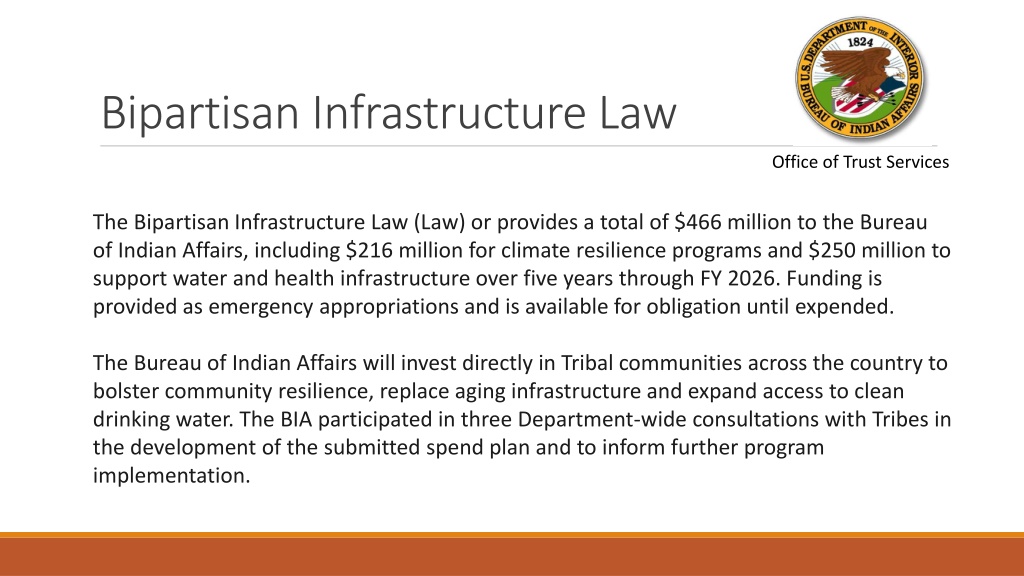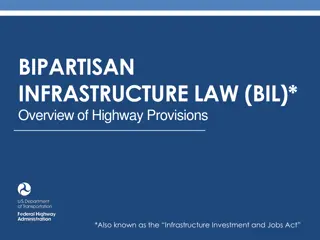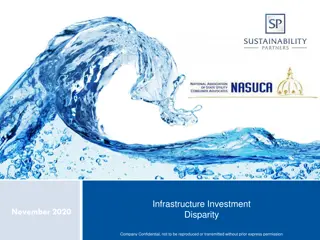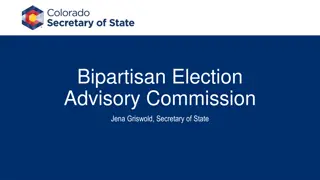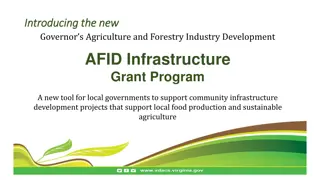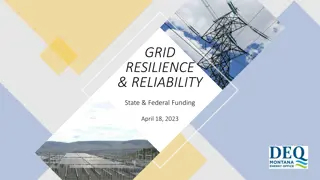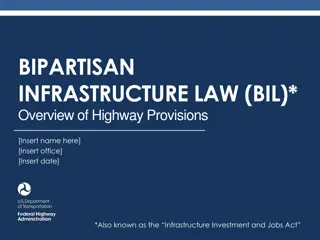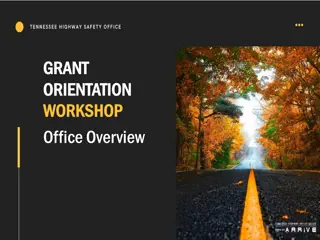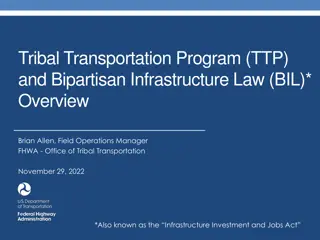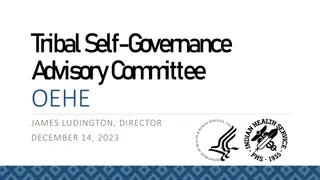Bipartisan Infrastructure Law Funding Overview
The Bipartisan Infrastructure Law allocates $466 million to the Bureau of Indian Affairs over five years to support climate resilience programs, water infrastructure, and community projects. It includes funding for irrigation, safety of dams, tribal climate resilience, and community relocation initiatives.
Download Presentation

Please find below an Image/Link to download the presentation.
The content on the website is provided AS IS for your information and personal use only. It may not be sold, licensed, or shared on other websites without obtaining consent from the author.If you encounter any issues during the download, it is possible that the publisher has removed the file from their server.
You are allowed to download the files provided on this website for personal or commercial use, subject to the condition that they are used lawfully. All files are the property of their respective owners.
The content on the website is provided AS IS for your information and personal use only. It may not be sold, licensed, or shared on other websites without obtaining consent from the author.
E N D
Presentation Transcript
Bipartisan Infrastructure Law Office of Trust Services The Bipartisan Infrastructure Law (Law) or provides a total of $466 million to the Bureau of Indian Affairs, including $216 million for climate resilience programs and $250 million to support water and health infrastructure over five years through FY 2026. Funding is provided as emergency appropriations and is available for obligation until expended. The Bureau of Indian Affairs will invest directly in Tribal communities across the country to bolster community resilience, replace aging infrastructure and expand access to clean drinking water. The BIA participated in three Department-wide consultations with Tribes in the development of the submitted spend plan and to inform further program implementation.
Office of Trust Services Office of Trust Services The Office of Trust Services is responsible for the management of the following Bipartisan Infrastructure Law funded programs: Irrigation and Power Projects Safety of Dams Tribal Climate Resilience Climate Adaptation Community Relocation Orphaned Wells Ecosystem Restoration
Irrigation and Power Projects The BIL provides $50 million for irrigation and power projects allocated in equal $10 million amounts per year for FY 2022-2026, all of which is available until expended. Funds will address deferred maintenance needs at 17 congressionally authorized irrigation projects located on Indian reservations across the Rocky Mountain, Northwest, Southwest, Navajo and Western Regions. BIA has prioritized funding of projects that reduce deferred maintenance and the risk of failure and align with Condition Assessments and Modernization Studies to rehabilitate aging infrastructure.
Safety of Dams Office of Trust Services The BIL provides $200 million for Safety of Dams and Water Sanitation to be allocated in $50 million increments over FY 2022-2026. In FY 2022, The BIA Safety of Dams program will utilize $29.1 million in FY 2022 to accelerate rehabilitation activities using the current prioritization methodology, based on inspections and analysis of all high-hazard program dams to understand the risk each structure presents to downstream residents. In FY 2022, $10.65 million will be allocated for Water Sanitation purposes by the Office of Facilities and Property Management to address Environment Protection Agency notice of violations, identify contamination issues, reduce system failure risk, reduce exposure to contaminants for Indian Affairs and Tribal staff and address critical gaps in water delivery.
Tribal Climate Resilience Office of Trust Services The law provides $216M over five years for Tribal climate resilience, adaptation, and community relocation planning, design, and implementation of projects, divided as follows: $130 million is provided for community relocation $86 million is provided for Tribal climate resilience and adaptation projects. Of the total amount available, $43.2 million is available to spend each year. Community Relocation awards could be used tosupport: risk assessment, (2) planning, (3) implementation, and (4) capacity building. Climate Adaptation awards could be used to support: training and workshops, adaptation planning, youth engagement, implementation, travel, and capacity building.
Tribal Climate Resilience Contd Office of Trust Services Funding will support capacity building for those Tribes facing highest risks to support improved intersectoral and interagency efforts around community-led relocation, managed retreat, and protect-in-place efforts. It can provide for training, capacity for scoping efforts, travel to attend trainings and conferences, and youth and intergenerational efforts to address climate change will continue to be funded efforts within the awards program. A few pilot demonstration projects are anticipated to be announced in late 2022 for community relocation funding. Tribes will be selected based on factors such as risk level, community- readiness, existing plans or designs, and potential to yield lessons-learned for other Tribes facing similar issues.
Orphaned Wells Office of Trust Services The Law provides $150 million over five years to plug orphaned wells and to restore associated well sites on Tribal lands. Funds can be used to plug orphaned wells and to remediate and reclaim orphaned well sites on the Indian Tribe s respective trust or restricted lands. Eligible Tribes may elect to directly receive grant funding or, in lieu of a grant, an Indian Tribe may request that the BIA administer and carry out plugging, remediation, and reclamation activities.
Ecosystem Restoration Office of Trust Services The BIL provided an $4.8 Million Investment to the BIA in Ecosystem Restoration and Resilience. The Infrastructure Law makes a critical investment in the resilience and restoration of America's lands, including funding for stewardship contracts, ecosystem restoration projects, invasive species detection and prevention, and native vegetation restoration efforts. OTS Programs are currently seeking project proposals for Fiscal Years 2023 to 2026. These projects must fit one of the following categories: Invasive Species Resilient Recreation Sites on Federal Lands Revegetation and Hazard Mitigation on Mined Lands National Revegetation Effort including National Seed Strategy
